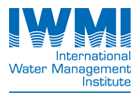Presentations 2016
Guo, Zhilin
Presentation Title
Groundwater salinization due to hydraulic closure in Tulare Basin over a long term time scale
Institution
University of California, Davis
Video
Video Not Available
Presentation
Profile Picture
Picture Not Available
Abstract
Population growth and the expansion of agriculture, coupled with climate uncertainties, have accelerated groundwater pumping and overdraft in alluvial aquifers worldwide. The low rate of replenishment is far exceeded by the rate of groundwater pumping in overdrafted aquifers, which results in the substantial water table declines and contributes to the formation of a “closed” basin. Moreover, in past decades, extreme weather conditions (i.e., severe drought in California for the past five years) have resulted in unsustainable surface water storage. This increases demand for groundwater to supplement low surface water supplies, and consequently, drives groundwater overdraft. Groundwater salinity increases in these closed basins as evaporation and groundwater pumping become the dominant exits for water. Irrigated agricultural basins are particularly at risk to groundwater salinization, as naturally occurring (i.e., sodium, potassium, chloride) and anthropogenic (i.e., nitrate fertilizers) salts leaches back to water table through the root zone, while a large portion of pumped groundwater leaves the system as it is evapotranspired by crops. In this study, the water balance and salt balance in Tulare Basin, California were computed. Groundwater degradation under current, overdrafted conditions was further investigated applying a solute transport model, and the time scales under which groundwater salinity may pose a threat to societies was estimated. Lastly, and most importantly, management strategies to mitigate groundwater salinization will be proposed.
|












